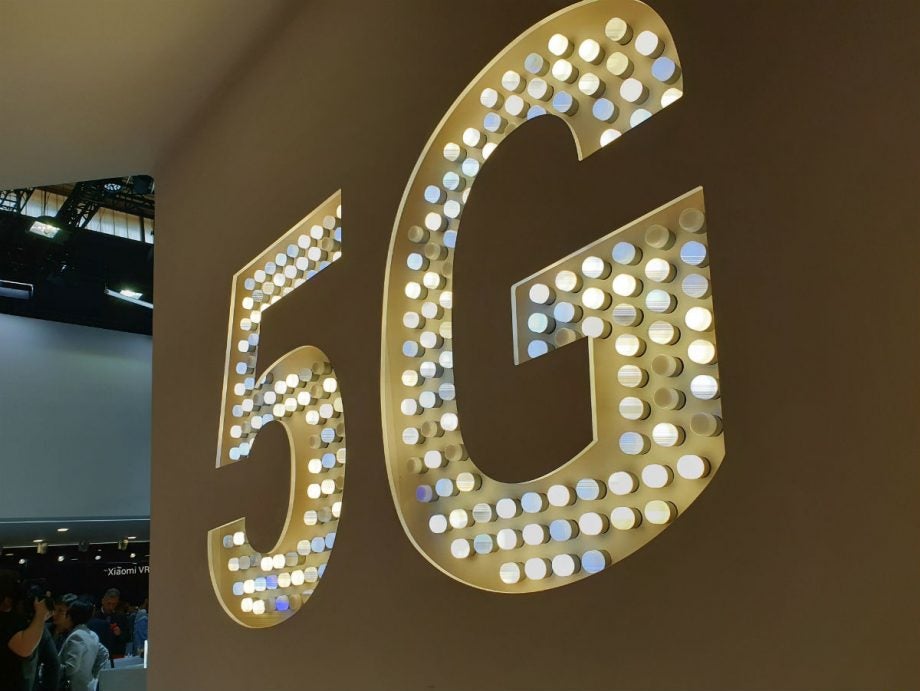Three hopes its sky-high 5G speed claims make up for the fact that it lost the first key 5G battle

Three has shed a little more light on its upcoming UK 5G network, at a press event that was jam-packed with bold claims about how it will deliver faster 5G speeds than any of its rivals. However, will it be enough to claw back some of the ground it has lost to EE and Vodafone?
First, some background. Three’s 5G service is set to go live in August, but it will initially consist of a home broadband service in London. Three will only offer 5G phones once its 5G network has been switched on in 25 UK cities − something that’s scheduled to happen before the end of 2019.
This puts it a little way behind EE and Vodafone, which have taken a lead on the 5G front. 5G phones have been available on EE’s network since June 7, and devices will be available on Vodafone’s 5G network from July 3 − which is this Wednesday.
However, at a press event in London on July 1, Three repeatedly tried to downplay the importance of being the first UK mobile operator to send its 5G network live. The company also made some big claims, which include the following quotes (and several more variations of them):
- “First isn’t fastest or best”
- “Only Three has enough spectrum to deploy 5G effectively”
- “5G is ours to own”
In many cases, far too much importance is placed on being first − just look at the Royole FlexPai and Samsung Galaxy Fold. However, in the case of 5G, being first definitely was a big deal.
That’s because the 5G revolution is effectively taking place in two stages − and right now, we’re at the very start of the 5G journey. Blanket 5G coverage is still way off, and not only are 5G devices not yet widespread − in many cases they’re also expensive and deeply flawed.
In other words, 5G is currently really only for early adopters. And for early adopters, being first is, of course, of the utmost importance.
Three essentially lost the first key 5G battle to EE. But it’s now time to focus on the long game. The battle for general consumers will only really get going next year, and by then the landscape should look very different indeed.
Three has made a lot of big claims about the speed of its 5G network, and if it comes good on those it will be in a great position to take on EE and Vodafone.
“When we launch 5G in the UK we will have the most spectrum in the market,” said Shadi Halliwell, Three’s CMO. “And not all spectrum is created equal.”
In June − when, incidentally, Three said that it will offer the “fastest 5G network in the UK” and that it’s also the only operator that would offer a “true 5G experience” − it explained that it has acquired a 100MHz contiguous block of 5G spectrum covering 3580-3680MHz.
According to the International Telecommunication Union (ITU): “5G needs a significant amount of new harmonised mobile spectrum. Regulators should aim to make available 80-100MHz of contiguous spectrum per operator in prime 5G mid-bands (e.g. 3.5GHz) and around 1GHz per operator in millimetre wave bands (i.e. above 24GHz).”
Spectrum within the 3.3-3.8GHz range “offers a good mixture of coverage and capacity benefits” and will “form the basis of many initial 5G services”, the ITU adds.
In December 2018, Halliwell explained, Ofcom approved a licence variation request submitted by Three, which resulted in the mobile operator securing a 100MHz contiguous block of spectrum in the 3.4-3.8GHz band.
Neither EE, Vodafone or O2 managed to get an 80-100MHz contiguous block and, to put it lightly, Halliwell said: “Not many people were really happy [about Three’s arrangement]”.
And in arguing against the move, Three’s biggest rivals involuntarily paid the mobile operator some seriously big compliments.
Related: Best smartphone
For instance, here’s what Telefonica argued at the time: “[Three] would be the only operator able to exploit fully the benefits (speed, capacity and latency) associated with 5G and supporting network infrastructure, such as higher order MIMO, available from 2019”.
“We expect the variation to provide [Three] with a small to moderate incremental increase in capacity … which will allow it to offer higher average speeds in heavily loaded cells … We also expect an increase in the peak speeds it can offer due to using a larger single carrier, and potentially better 5G coverage by having higher transmit power levels,” was Ofcom’s conclusion.
However, it added: “We do not consider it likely that the benefit to H3G described above would be so significant as to provide H3G with an unmatchable competitive advantage over its competitors. Moreover, there are a number of dimensions to competition, and capacity and 5G speeds are only one aspect of the competitive offering. We therefore do not consider the variation is likely to have an adverse impact on competition such that we should not consent to it.”
We were impressed with the speeds we got on the OnePlus 7 Pro 5G on EE’s network, so it will be interesting to see how much faster Three’s 5G network might be, if at all.


